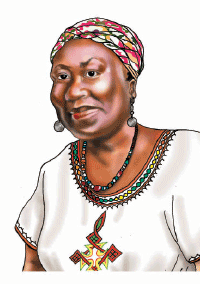Complexicated. Adjective. 1. Inextricably complex and complicated; used solely by Nigerians to describe themselves and their nation (!)
“We have a narrative of exceptionalism.” That was Mr. Tunji Lardner, the Executive Director of WANGONET, a network of NGOs in West Africa, speaking to the audience at the Oduduwa Hall of the Obafemi Awolowo University on Saturday, 15th November, 2014. The occasion was a TEDx-Ife event, the third in the series, and although Mr. Lardner’s participation was virtual (via a video recording), the impact of his contribution was nonetheless tangible. The theme which had been chosen for the event was “Solving X”, and each of the speakers approached it in diverse and very interesting and original ways. Mr. Lardner’s approach was to assume Nigeria to be an equation; X for him represented what is commonly referred to as “the Nigerian factor”.
Basically, the Nigerian factor is that constantly recurring element in the Nigerian equation which we employ to explain why our equation never balances – or indeed, to ensure that it does not! Similar or identical circumstances normally would result in similar or identical outcomes in other places – a balancing of the equation – but not in Nigeria. Why? Well, because this IS Nigeria, and we possess that X factor which makes us different, unique among all the nations found on the face of the earth. At least, that seems to be the narrative we have evolved over the years and which, in my opinion, has become something of a self-fulfilling prophecy. It is time to do away with that narrative.
Why do we believe we are fundamentally different from other nations? Like Mr. Lardner asked in his talk: What facts or statistics do we have to support this claim? Do the laws of physics not apply here as they do in other places? I too had posed similar questions in an article written almost a decade ago: Are we as a people not driven by the same human passions and desires? Do we not all desire to have good food, decent shelter, a clean environment to live in, and enjoy sound health, just like anybody else? Do we not weep at the loss of loved ones, feel bad when cheated, and rejoice when success attends our endeavours? So, just what is it that makes us believe that we are unique, a different specie of human beings? Something in our environment? Why were the young people of Burkina Faso ready and able to bring down an oppressive government and within a matter of weeks turn things around in their nation, while our own, probably over a hundred million of them, do not even seem to be aware of the incredible power they have to bring about the change they long for as they weave their way amidst vehicles, hawking plantain chips in the burning sun? Why are so many of them content to waste their time as hired crowds at political rallies organised by and for the very people who are keeping them down?
Let me share some of the remedies prescribed by Mr. Lardner, which I completely agree with. First, we must begin to use our minds again. According to him, “we have abdicated reason for faith; we have outsourced our problem-solving to God”. Basically, we have told our God-given brains and our intellect to go to sleep, and we call upon God to come down and fix the mess we have created. No; we have already been equipped with the tool we need for fixing messes, and the earlier we put our thinking caps back on the better for us. Our problems may be complex, but they are not necessarily complicated. That was what led Mr. Lardner to talking about the “complexicated” narrative which we have evolved and which he characterised as lazy. In his words: “Logic, reason and good judgment are what we need to apply to solve our problems.” We can embrace complexity, but we must shun complications which, to my mind, are defeatist in nature. Once you tell yourself a problem is “too complicated”, you have already adopted a “Can’t-Do” attitude. What we need to do is seriously engage our minds on issues, no matter how thorny they may appear to be.
Furthermore, we were encouraged to “Organise, not Agonise”. Agonising is something we Nigerians have become masters at: Oh, how we love to gripe and complain about everything! But does that change anything? Indeed, even those who are responsible for the sorry state of affairs in our nation also complain about matters under their purview! Have we come to believe that complaining about problems would somehow lead to a solution? We have to begin to organise, and that must be in a variety of original and imaginative ways. We were reminded of the statement by Frederick Douglass: “Power concedes nothing without a demand. It never did and it never will.” It is time for Nigerians to start demanding proper accountability and use of our resources from those who are entrusted with the responsibility of managing our affairs. But first, we must end the narratives of “exceptionalism” and “complexication” which only serve to confirm them in their refusal to give us good governance. We must begin to believe and deliberately declare that there is nothing differentiating us from the normal run of human beings but some warped ideas which we have fabricated for ourselves. Away with them!














